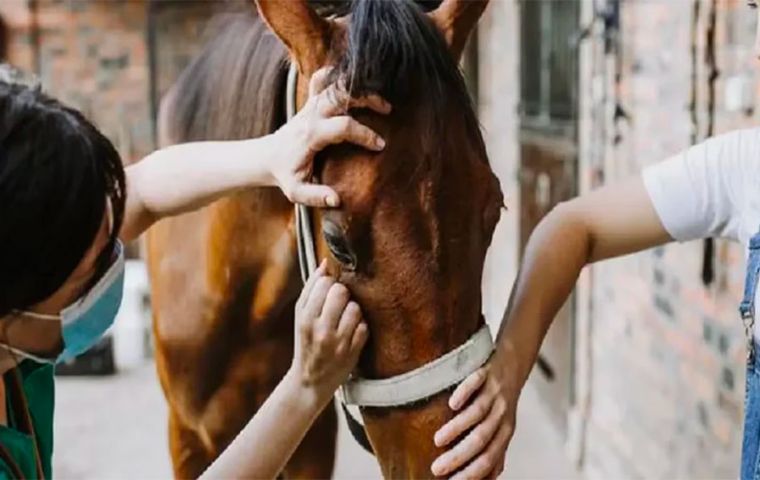MercoPress. South Atlantic News Agency
Second victim dies of equine encephalitis in Argentina
 All 10 cases in the province of Buenos Aires required hospitalization, with only four of them discharged so far
All 10 cases in the province of Buenos Aires required hospitalization, with only four of them discharged so far Health authorities in the Argentine province of Buenos Aires Thursday confirmed the first death due to Western equine encephalitis in the territory which was also the second nationwide. The victim was a 74-year-old woman with comorbidities from a semi-rural area. All 10 cases in the province -in General Viamonte, Junín, Leandro N. Alem, Arrecifes, Baradero, La Plata, Ramallo, Campana, and Bragado- required hospitalization, with only four of them discharged so far.
The patient began experiencing symptoms in mid-December when she was admitted to the hospital. Due to her underlying condition, her overall health suddenly deteriorated and she was transferred to the intensive care unit with mechanical support.
Western equine encephalitis is a neurological pathology transmitted through the bites of infected mosquitoes and, although it mainly affects horses, it can also be transmitted to humans where it has an incubation period of 2 to 10 days. Although in most cases it is asymptomatic, it may also cause fever, tiredness, muscle aches, and general malaise that subside within seven to ten days.
Authorities insist on the importance of using proper repellents while outdoors where sick or dead animals have been detected, in addition to other measures to prevent the spread of mosquitoes. Provincial officials have also launched a preventive deployment to fumigate geo-referenced zones with outbreaks among horses.
Meanwhile, in neighboring Uruguay, the National Emergency System Sinae has distributed 21,000 bottles of mosquito repellent to prevent equine encephalitis.
The Departmental Emergency Coordination Centers (Cecoed) of Artigas, Salto, and Paysandú already received some 6,800 items last week after floods hit the northern coast, which will be added to the new ones.
Sinae Director Santiago Caramés said the preventive campaign was launched in coordination with the Ministries of Livestock, Agriculture and Fisheries (MGAP) and Public Health (MSP). He also recalled the importance of following the recommendations to avoid mosquito bites.




Top Comments
Disclaimer & comment rulesCommenting for this story is now closed.
If you have a Facebook account, become a fan and comment on our Facebook Page!